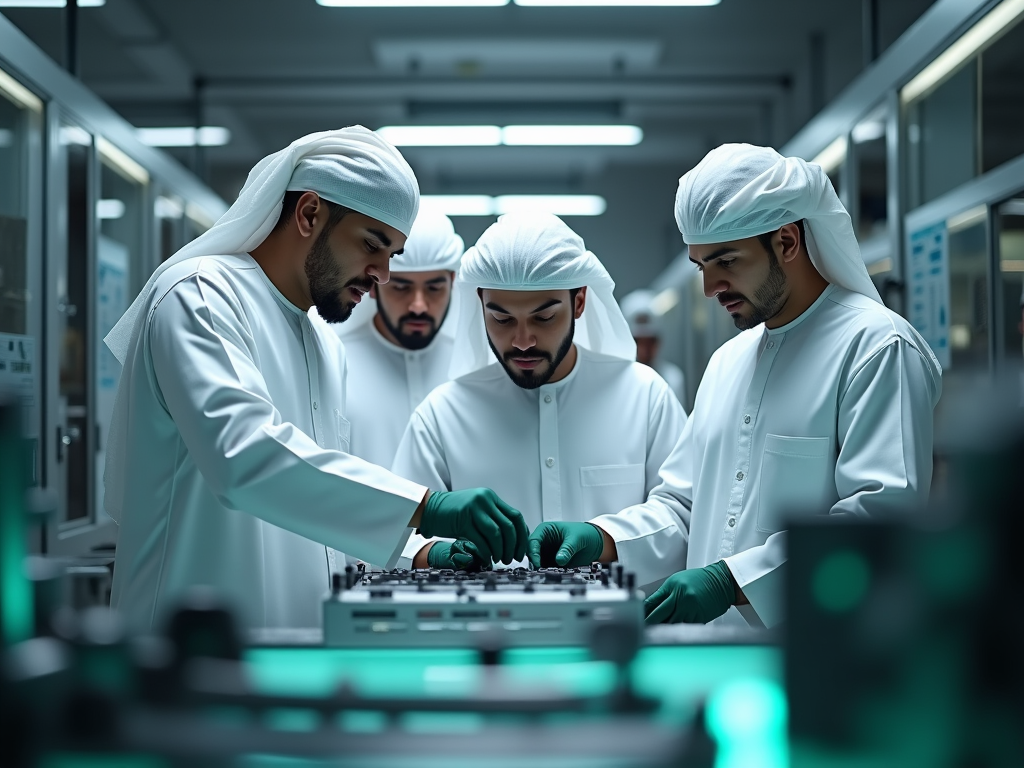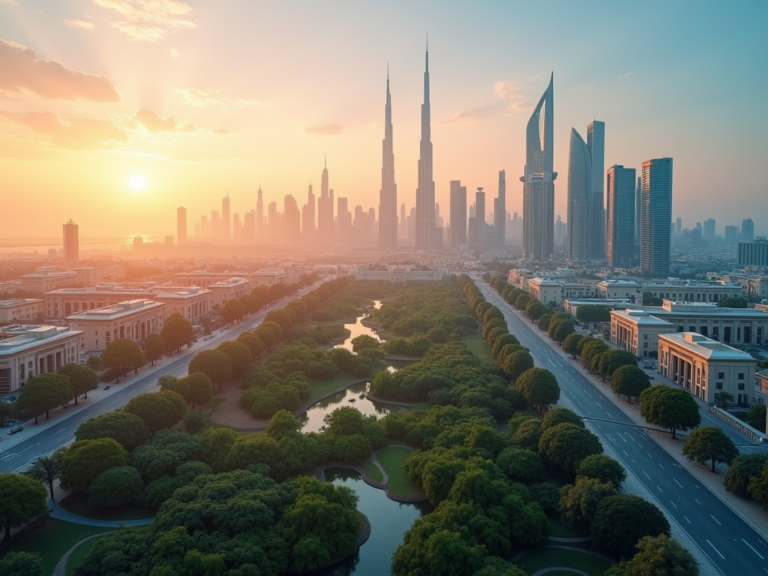Emiratisation represents a crucial movement within the UAE aimed at enhancing the involvement of Emirati citizens in various sectors, particularly manufacturing. As the nation strives for economic diversification beyond oil dependence, this initiative reshapes not just employment patterns but also the manufacturing landscape itself. Through a blend of governmental policies and strategic partnerships with private sectors, Emiratisation is driving innovation, improving efficiency, and creating a sustainable workforce. In this article, we explore five essential ways Emiratisation is influencing the future of manufacturing in the UAE.
1. Increasing Local Employment Opportunities

One of the most immediate impacts of Emiratisation on the manufacturing sector is the creation of local job opportunities for Emiratis. This initiative encourages businesses to prioritize hiring national talent and provides incentives for companies that meet government-set Emiratisation ratios. As more Emiratis enter the workforce, the skills and perspectives they bring contribute to a richer workplace culture. Furthermore, local employment strengthens community ties and fosters a sense of ownership and responsibility among Emiratis. The UAE government is also investing in training programs to ensure that its citizens are adequately prepared for roles in manufacturing. This targeted approach not only boosts employment rates but also enhances overall productivity in the sector.
2. Promoting Knowledge Transfer and Skill Development

Emiratisation acts as a catalyzing force for knowledge transfer and skill development within the manufacturing industry. By integrating Emiratis into skilled positions, there is a natural dissemination of expertise and technology that improves technical competencies across the workforce. Companies are encouraged to develop training programs that not only equip Emiratis with the necessary skills but also help in retaining knowledge within the country. These training initiatives can take various forms, including apprenticeships, vocational training, and partnership programs with educational institutions. As Emiratis acquire new skills, they become instrumental in driving innovation, thereby aligning with global manufacturing trends. Addressing skills gaps among the Emirati population also enhances the competitiveness of the UAE’s manufacturing sector on a global scale.
3. Driving Innovation through National Talent
With a focus on leveraging local talent, Emiratisation is leading to a surge in innovative practices within the manufacturing sector. Emirati employees, equipped with cultural insights and a unique perspective, are crucial in identifying gaps in production processes and suggesting improvements. The infusion of national talent into leadership and management positions encourages risk-taking and experimentation—key elements of innovation. Companies that invest in research and development are likely to see enhanced creativity as Emiratis contribute ideas rooted in local knowledge and consumer behavior. Furthermore, the collaboration between local firms and international players fosters a culture of innovation through shared experiences and technologies. As a result, manufacturing in the UAE evolves to incorporate cutting-edge practices that appeal to both local and foreign markets.
4. Enhancing Economic Sustainability
Emiratisation plays a fundamental role in promoting economic sustainability within the UAE’s manufacturing sector. By focusing on developing a skilled local workforce, the initiative reduces the UAE’s dependency on foreign labor, which can be subject to economic fluctuations and geopolitical uncertainties. A self-reliant workforce ensures that manufacturing industries are more resilient against external shocks. Furthermore, the government encourages companies to adopt sustainable practices, such as resource-efficient production techniques, which align with Emiratisation goals. This synergy between local employment and sustainable manufacturing not only secures economic stability but also aligns with the UAE’s vision for a green economy. The end result is a manufacturing sector that is both robust and adaptable to the evolving demands of global trade.
Emiratisation fosters strong collaboration between public initiatives and private manufacturing companies, creating a unified front in tackling challenges. This collaboration often entails joint ventures and partnerships that emphasize societal benefits and economic growth. The government sets a regulatory framework that encourages private sectors to not only employ Emiratis but also contribute to the overall economic strategy through investments in local communities. Examples include incentives for manufacturers who adopt Emiratisation plans or engage in corporate social responsibility initiatives aimed at youth development. These partnerships drive sector growth, making it imperative for private players to adhere to the principles of Emiratisation. Overall, forging these ties adds a layer of stability and foresight to the manufacturing ecosystem.
Conclusion
In summary, Emiratisation is fundamentally redefining the manufacturing landscape in the UAE by increasing local employment opportunities, promoting skill development, driving innovation, enhancing economic sustainability, and strengthening public-private partnerships. As this strategic initiative continues to unfold, its positive impact on the manufacturing sector becomes increasingly evident, fostering a more resilient and competitive economy. The UAE is setting a prime example of how a nation can balance modern industrial demands with social responsibility, ensuring that its citizens remain at the forefront of its progress.
Frequently Asked Questions
1. What is Emiratisation?
Emiratisation is a governmental initiative in the UAE aimed at increasing the employment of Emirati citizens across various sectors, particularly in the private and public workforce.
2. Why is Emiratisation important for the UAE’s economy?
Emiratisation helps reduce dependency on foreign labor, promotes local talent, and contributes to a more sustainable and resilient economy, aligning with the UAE’s long-term economic goals.
3. How does Emiratisation affect job creation in manufacturing?
Emiratisation mandates local hiring and incentivizes companies to prioritize Emirati citizens in their hiring processes, significantly increasing job opportunities in the manufacturing sector.
4. What role does training play in Emiratisation?
Training is pivotal for Emiratisation as it equips Emiratis with the necessary skills required in the manufacturing sector, ensuring they can effectively contribute to innovation and productivity.
5. How does Emiratisation foster innovation?
By integrating Emirati citizens into skilled positions within manufacturing, Emiratisation encourages the exchange of ideas and insights that promote innovation and modernizes manufacturing practices.









